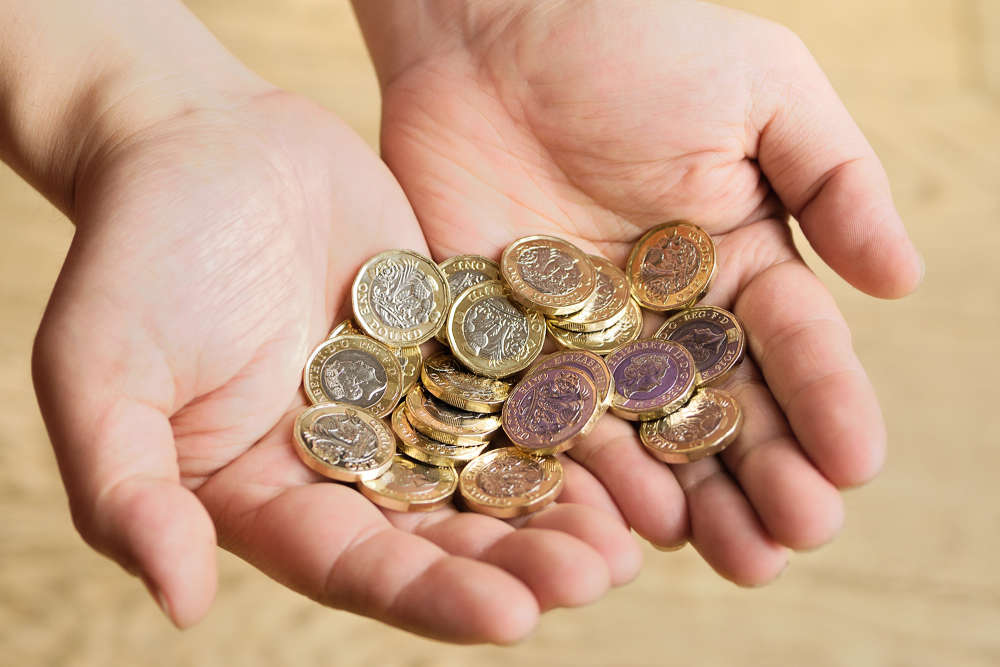
Adele Trathan explores the psychology of currency and understanding our relationship with money
Every aspect of our lives is in some way influenced by money, yet we often overlook the psychological complexity of our relationship with it. Whether we realise it or not, our perceptions of money and spending can significantly affect our financial reality and wellbeing; and yet if anything, we are ebbing further away from this.
A class apart
Indeed, a 2019 study conducted by the Royal Society for the Encouragement of Arts, Manufactures and Commerce (RSA) found that 70% of people in the UK consider themselves part of the ‘middle class’, despite an uneven distribution of wealth. As a result, many people may perceive that, in terms of money, they have more, or at times less, than they actually do.
The debit disconnect
This intriguing disparity between perception and reality is dangerous when you factor in how credit and debit cards have transformed our spending habits, given that they provide a sense of ease, convenience, and sometimes a disconnect from the actual expenditure.
An experiment conducted at the University of Bristol suggested that using physical cash can significantly reduce impulsive buying compared to card payments. The tactile experience of handing over cash helps create a deeper connection to the transaction, making the loss more real and thereby curbing reckless spending.

Consumerism
Moreover, our relationship with money has undeniably changed over time. The shift from a cash-dependent society to a digital economy has rendered the 'pain of paying' more abstract.
Furthermore, the societal push towards consumerism, accelerated by aggressive marketing strategies and the rise of online shopping, has driven a culture of 'buy now, pay later'.
So while consumerism drives economic growth, it can also lead to adverse effects such as over-indebtedness and a disconnect from financial realities. A report by the Money and Mental Health Policy Institute found that compulsive buying affects up to 5% of UK adults, indicating the need for better financial management strategies and awareness.
So, is consumerism a foe or friend? It's a double-edged sword. On one hand, it fuels economic activity, innovation, and a wealth of choice for consumers. Conversely, it can create an unhealthy obsession with material possessions, foster financial recklessness, and lead to environmental degradation. Striking a balance is vital.
Making the link
Financial distress and mental health are intimately entwined, with poor financial management often leading to increased anxiety and wellbeing concerns. In a comprehensive study by the Money and Mental Health Policy Institute, it was found that one in four people in the UK experiencing mental health problems are also in problem debt – three times the rate among the general population.
Meanwhile, a survey conducted by the Royal College of Psychiatrists revealed that half of UK adults with debts have contemplated suicide.
What’s more, financial struggles can exacerbate feelings of despair and hopelessness, often creating a vicious cycle where mental health issues lead to worsening financial situations, further deepening the mental health crisis.

Healthy habits
As we navigate the intricate relationship with money, it's crucial to consider ways we can foster a healthy financial mindset. First, transparency with our personal finances can be a powerful tool. Regularly reviewing bank statements and budgets not only keeps us informed but can also help realign our spending habits with our financial reality.
Secondly, as discussed, using cash for smaller, day-to-day transactions can heighten our awareness of spending.
Lastly, we should continually educate ourselves about financial matters. Resources like the Money Advice Service, a UK government initiative, can provide free advice to improve financial literacy and promote sound money management.
Overall, while our relationship with money is complex, influenced by shifting societal norms, personal perceptions, and a rapidly evolving digital economy, understanding these influences is the first step towards fostering healthier financial habits in future, as well as a more secure, more realistic and happier life for us and those around us.


 Five Films Which Make Us Want To Go On Holiday
Five Films Which Make Us Want To Go On Holiday
 Five Most Unique Rides Worldwide
Five Most Unique Rides Worldwide
 Five Of The Greatest Rollercoasters In The World
Five Of The Greatest Rollercoasters In The World
 Five Of The Most Unique Pastries Worldwide
Five Of The Most Unique Pastries Worldwide
 Be Well, Move Happy: Gardening & Connecting with Nature
Be Well, Move Happy: Gardening & Connecting with Nature



 Totland To Colwell Seawall Footpath Partially Reopened
Totland To Colwell Seawall Footpath Partially Reopened
 New Island Line Timetable From This Weekend
New Island Line Timetable From This Weekend
 Young Enterprise Glory For Carisbrooke And Medina College Team
Young Enterprise Glory For Carisbrooke And Medina College Team
 Pharmacy Opening Times For The Late May Bank Holiday Weekend
Pharmacy Opening Times For The Late May Bank Holiday Weekend
Comments
Add a comment